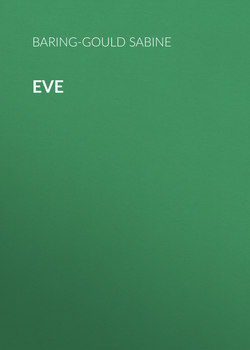Читать книгу Eve - Baring-Gould Sabine, Baring-Gould Sabine - Страница 13
CHAPTER XIII.
MR. BABB AT HOME
ОглавлениеA lovely July day in the fresh air of Dartmoor, that seems to sparkle as it enters the lungs: fresh, but given a sharpness of salt: pure, but tinged with the sweetness of heather bloom and the honey of gorse. Human spirits bound in this air. The scenery of Dartmoor, if bare of trees, is wildly picturesque with granite masses and bold mountain peaks. Barbara could not shake off the anxiety that enveloped her spirits like the haze of a valley till she rose up a long ascent of three miles from the wooded valley of the Tavy to the bald, rock-strewn expanse of Dartmoor. She rode on, attended by her little groom, till she reached Prince’s Town, the highest point attained by the road, where, in a desolate plain of bog, but little below the crests of some of the granite tors, stands a prison surrounded by a few mean houses. From Prince’s Town Barbara would have a rough moor-path, not a good road, before her; and, as the horses were exhausted with their long climb, she halted at the little inn, and ordered some dinner for herself, and required that the boy and the horses should be attended to.
Whilst ham and eggs – nothing else was procurable – were being fried, Barbara walked along the road to the prison, and looked at the gloomy, rugged gate built of untrimmed granite blocks. The unbroken desolation swept to the very walls of the prison.1 At that height the wind moans among the rocks and rushes mournfully; the air is never still. The landlady of the inn came to her.
‘That is the jail,’ she said. ‘There was a prisoner broke out not long ago, and he has not yet been caught. How he managed it none can tell. Where he now is no one knows. He may be still wandering on the moor. Every road from it is watched. Perhaps he may give himself up, finding escape impossible. If not, he will die of hunger among the rocks.’
‘What was the crime for which he was here?’ asked Barbara; but she spoke with an effort.
‘He was a bad man; it was no ordinary wickedness he committed. He robbed his own father.’
‘His own father!’ echoed Barbara, starting.
‘Yes, he robbed him of nigh on two thousand pounds. The father acted sharp, and had him caught before he had spent all the money. The assizes were next week, so it was quick work; and here he was for a few days, and then – he got away.’
‘Robbed his own father!’ murmured Barbara, and now she thought she saw more clearly than before into a matter that looked blacker the more she saw.
‘There’s a man in yonder who set fire to his house to get the insurance. Folks say his house was but a rummagy old place. ‘Tis a pity. Now, if he had got away it would not have mattered; but, a rascal who did not respect his own father! – not that I hold with a man prosecuting his own son. That was hard. Still, if one was to escape, I don’t see why the Lord blessed the undertaking of the man who robbed his father, and turned His face away from him who only fired his house to get the insurance.’
The air ceased to sparkle as Miss Jordan rode the second stage of her journey: the sun was less bright, the fragrance of the gorse less sweet. She did not speak to her young groom the whole way, but rode silently, with compressed lips and moody brow. The case was worse than she had anticipated. Jasper had robbed his father, and all that story of his coming as a messenger from Mr. Babb with the money was false.
One evening, unattended, Barbara Jordan rode to Buckfastleigh, asked for the house of Mr. Babb, and dismounted at the door. The house was a plain, ugly, square modern erection, almost an insult to the beauty of the surroundings. The drive from the entrance gate was grass-grown. There was a stucco porch. The door was painted drab, and the paint was blistered, and had flaked off. The house also was mottled. It had been painted over plaster and cement, and the paint had curled and come off in patches. The whole place had an uncared-for look. There were no flower beds, no creepers against the walls; the rain-shoots to the roof were choked, and the overflowing water had covered the walls where it reached with slime, black and green. At the back of the house was a factory, worked by a water-wheel, for cloth, and a gravel well-trodden path led from the back door of the house to the factory.
Barbara had descended from her cob to open the gate into the drive; and she walked up to the front door, leading her horse. There she rang the bell, but had doubts whether the wire were sound. She waited a long time, and no one responded. She tried the bell again, and then rapped with the handle of her whip against the door.
Then she saw a face appear at a side window, observe her and withdraw. A moment after, a shuffling tread sounded in the hall, chains and bolts were undone, the door was cautiously opened, and in it stood an old man with white hair, and black beady eyes.
‘What do you want? Who are you?’ he asked.
‘Am I speaking to Mr. Babb?’
‘Yes, you are.’
‘May I have a few words with you in private?’
1
The author has allowed himself a slight anachronism. The prison was not a convict establishment at the period of this tale.
